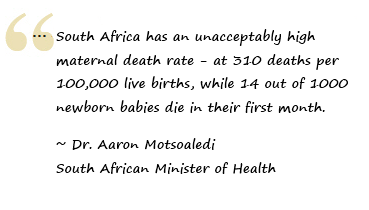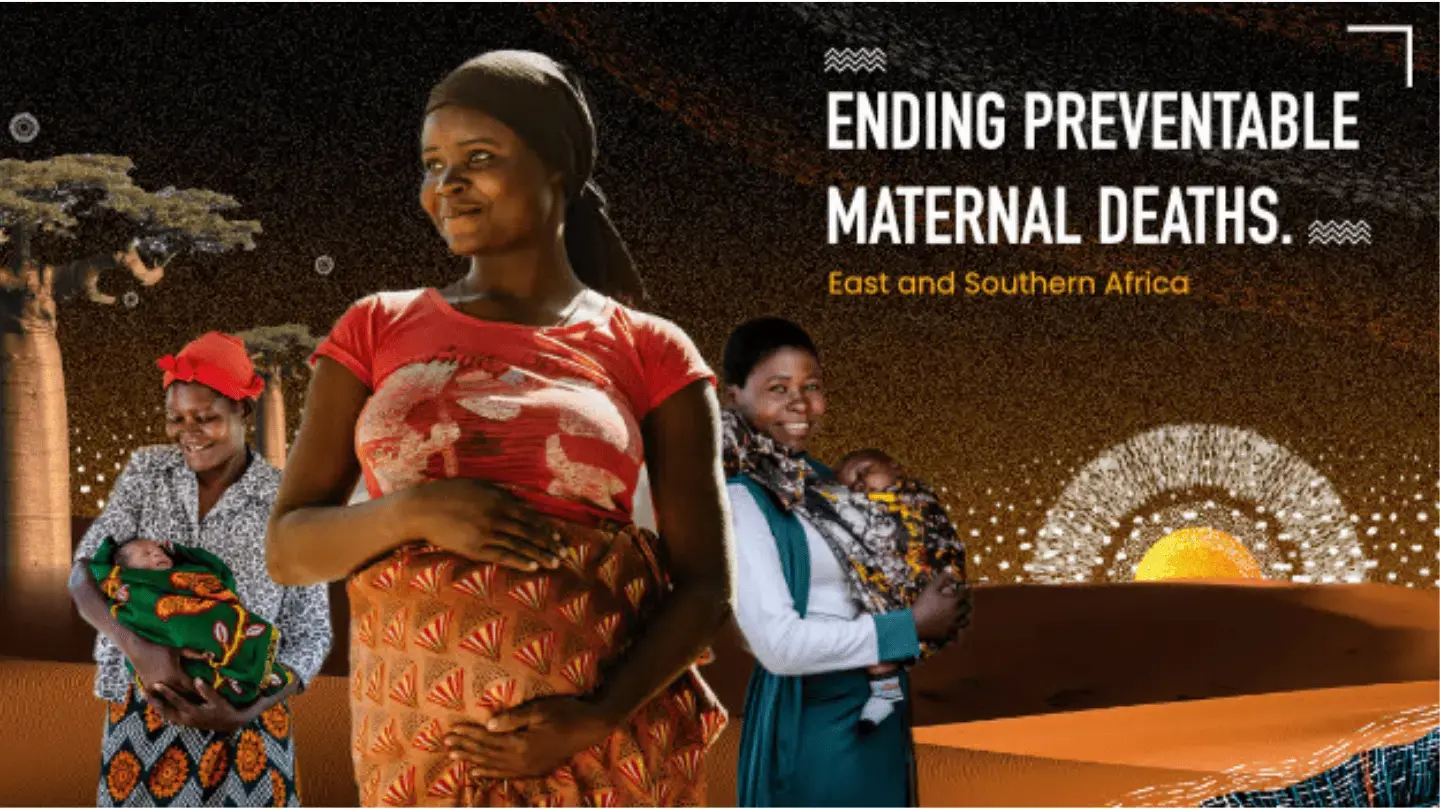South Africa's Minister of Health, Dr. Aaron Motsoaledi, demonstrated the country's commitment to improving health in South Africa with the launch of CARMMA at Osindisweni Hospital in Verulam in KwaZulu-Natal on 4 May. The campaign aims to reduce the number of women who die as a result of childbearing, during pregnancy or within 42 days of delivery or termination of pregnancy.
‘South Africa Cares - No Woman Should Die While Giving Life'
Speaking at the launch, Dr. Motsoaledi said that South Africa experiences an unacceptably high rate of maternal deaths. According to the National Department of Health's November 2011 Report of the Health Data Advisory and Coordination Committee, the country's maternal mortality ratio was 310 deaths per 100,000 live births, while 14 out of 1000 newborn babies die within one month of life.

The minister was joined by the MEC for Health in KwaZulu-Natal, Dr. Sibongiseni Dhlomo, Members of Parliament, United Nations Population Fund Reproductive Health/Maternal Health Technical Adviser Dr. Akinyele Dairo, the African Union Commissioner for Social Affairs, Advocate Bience Gawanas, Mozambique's Graca Machel and musical icon Yvonne Chaka Chaka. More than 500 delegates attended, including representatives from SADC member states.
Community mobilization campaigns were discussed as important to educate women and men on the importance of encouraging women to present early for antenatal care. Communities should be the bearers of information to prevent unintended pregnancies, especially among HIV positive women and teenagers, and to reduce the stigma of HIV.
Dignitaries joined Dr. Motsoaledi on a tour to view the services on offer at Osindisweni Hospital that are critical in reducing maternal deaths. They also visited maternity waiting homes used by women preparing to deliver but who stay in areas without access to reliable transport, some without appropriate road infrastructure and where cars and ambulances are unable to reach their homes. These women are defined as at ‘high risk'. Babies born before time also run the risk of dying from exposure to cold. An obstetric ambulance, for use for pregnant women only, was on site to respond to emergency calls.
Dr. Dairo congratulated Dr. Motsoaledi on taking very bold steps in addressing maternal mortality and saving the lives of women and babies. Health care workers at Osindisweni Hospital raised some of the challenges they deal with, including women delaying their attendance of pregnancy assessments after falling pregnant, and attending hospital only long after going into labour. They also mentioned the challenge of the deaths of women and babies related to AIDS complications. However, they were confident that many of the deaths will be prevented by following treatment protocols, especially the provision of AIDS drugs during pregnancy.
The launch was followed by a conference on 5 May at Elangeni Hotel in Durban, where officials discussed how South Africa will move forward in addressing these challenges and reducing the high number of deaths of women and babies.
For more information please contact:
Meisie Lerutla, National Programme Officer: Sexual Reproductive Health, United Nations Population Fund: UNFPA
Email: lerutla@unfpa.org
Tel: 012 354 8412




